For most of the internet’s history, users have had to use routers to connect to the web. It is a piece of equipment that allows multiple devices (like computers, phones, and tablets) to connect to the internet at once. However, how many IP addresses should a router have, and what is their importance?
The rule of thumb with IP addresses is that a router needs two IP addresses, one for itself and one for the network. So, if you have a router that connects to the internet, you need to make sure it has two IP addresses: one for the router and one for the network.
The number of IP addresses that you will find on any router should depend entirely on the size of your network and the amount of equipment you wish to connect to the router. Each piece of equipment connected to the router will require an IP address, and a smaller network can run on fewer IP addresses than a larger network.
Key Takeaways:
- A router has two IP addresses: A public IP address is used by devices outside of the network to connect to the Internet. A private IP address is used by devices within the network to communicate with each other.
- You can find out how many IP addresses your router can assign by checking its specifications in its manual.
- Routers should have enough IP addresses to handle every device that will be using it.
Can A Router Have Multiple Ip Addresses?
Yes, a router can have multiple IP addresses. A router can have up to four. The first IP address is what’s known as the “internal” or “local” IP address. This is the address that your computer and other devices on your network use to communicate.
For example, if you have a printer connected to your device via Wi-Fi, it will have an internal IP address to communicate with your computer.
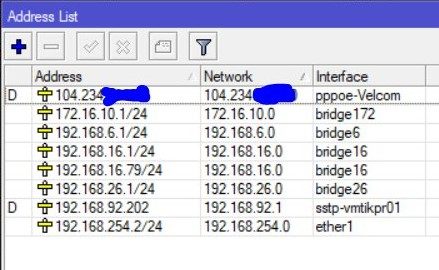
The second IP address is what’s known as the “external” or “public” IP address. This is the address that anyone else on the internet can use to access your network. So, for example, if you’re running a web server in your home, anyone can visit your website by going to its external IP address.
Sometimes you might want to set up multiple networks on your router so that each network has its external IP address. Then, if someone were to visit one of those external IP addresses, they would only be able to access the devices on that particular network and not any other part of your system.
Why Does My Router Have So Many Ip Addresses?
When you connect a device to your home network, the router assigns an internal IP address. Because there are usually more devices in a home than there are available IP addresses. So, most routers provide connections to multiple devices. Your router handles this by assigning your device private IP addresses. This means other devices on the internet can’t communicate directly with them.
You see so many IP addresses when you look at your router’s configuration page. Each of these is for one of your connected devices. However, only one of them is the external public IP address used to identify your device from outside the network.
While it may seem like you have a lot of addresses, each of these is assigned by the router. Therefore, you don’t need to do anything about them unless you want to set up port forwarding, which would require manually assigning specific ports to certain devices or services on your network.
Get To Know: Does Having Two Routers Slow Down the Internet?
How To Find Your Router’s Ip Address?
Sometimes it can be difficult to figure out how to find your router’s IP address. Here are some simple steps to follow that will help you find the IP address for your router:
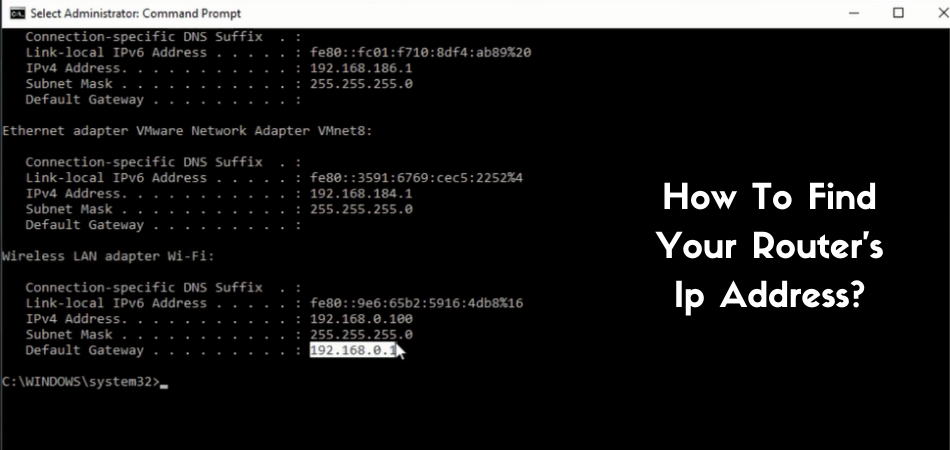
Locating Ip Address On Your Computer
Step 1: Go to your desktop home type “cmd” into the search bar on your screen. You should see it as a command prompt. Press it to open, and this will open up a black screen with white text.
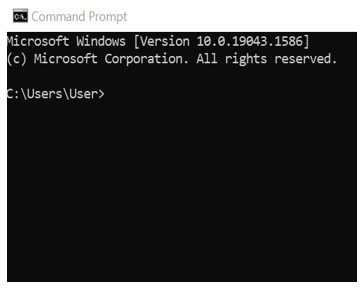
Step 2: Once you have successfully opened the command prompt, type in “ipconfig /all” and hit return.
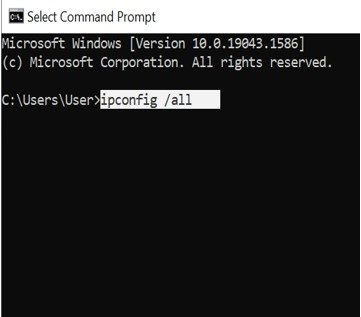
Step 3: This will give you a list of your network adapters with their corresponding IP addresses listed next to each one. The first one that shows up should be for your internet connection.
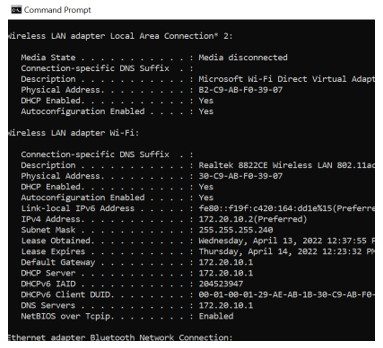
How Many Ip Addresses Should A Router Have?
The number of IP addresses that your router has available to assign to devices is determined by the number of addressable ports. Therefore, the more ports, the more potential devices can get an IP address from your router.
The number of ports you need depends on a lot of factors. First, the number of wired devices connected directly to the router will determine how many ports are necessary. For instance, if you have four computers plugged directly into your router, then you need four ports for those machines.
If you have any wireless devices connected to your networks, such as phones and tablets, the number of IP addresses needed is calculated differently. This is because wireless connections do not use physical ports; instead, they simply connect to the airwaves available from your router and use one port out of the total available pool.
This means that if there are ten wireless devices connected to your network, they use only one port each.
To find out how many IP addresses exist on your network and how many are currently in use by each device, open a command prompt window (open Start Menu, use the search window, and type “cmd”). Then type ipconfig/all and press enter. You will see the numbers of IPs your router has.
Locating Ip Address Using Your Phone
The model on this page is an iPhone
Step 1: Go to the iPhone settings

Step 2: Click on the Wi-fi below the Airplane mode.
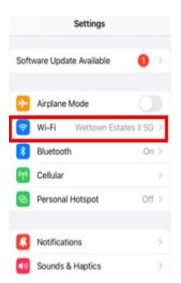
Step 3: Locate the internet provider you are using and click on the icon in front of it, as seen in the image below
![]()
Step 4: Scroll down when the information is revealed, and you will see the router, which you should click, and you will find the IP there.
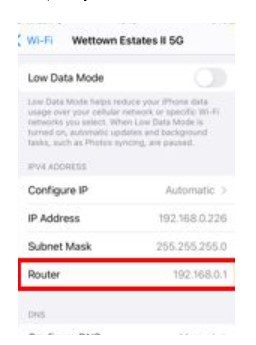
Conclusion
Most routers should have enough IP addresses to handle every device using it. Every device using the router must have its IP address, so you will need to make sure your router has an equal number of IP addresses to the number of devices using it.
With lots of misconceptions about how many IP addresses should a router have, we have the right answer for you on this page. We do hope you find every piece of information on this page resourceful.